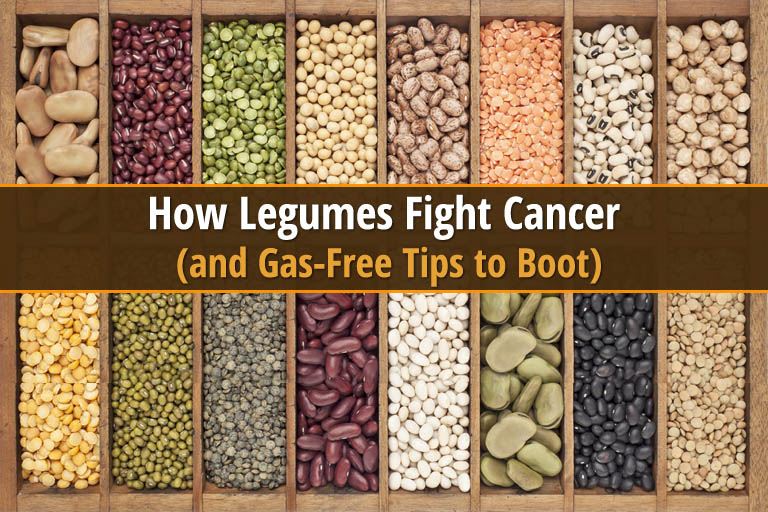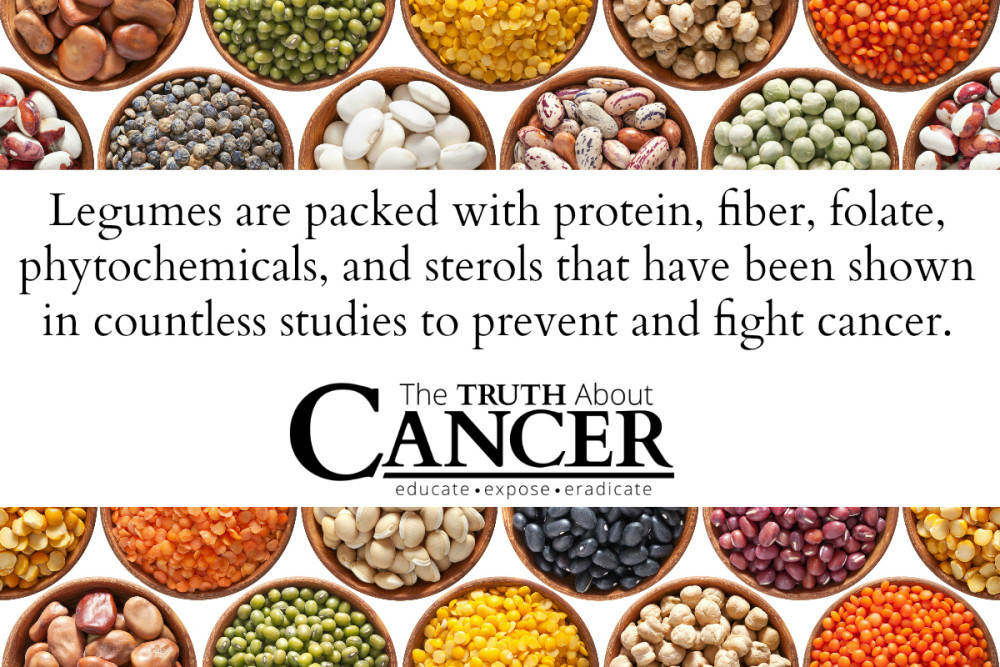The members of the legume family number in the thousands and include beans, peas, lentils, and peanuts. They are some of the least expensive and most nutritious foods on the planet; wonderfully plentiful, easy to prepare, and full of protein, fiber, and nutrients. They’re an excellent choice for those following a meatless diet, but the benefits of legumes extend to your entire body. As the most well-known of the legume family, beans are typically not considered as a first option for meat eaters.
Their lack of a hefty price tag (garnering them a label of “cheap” or somehow unworthy) and often marketed as a “replacement” for meat, has gotten these fantastic foods shuffled to the back of the health food line. There are so many great things about legumes that we had to include them as some of the best cancer-fighting foods.
In regards to legumes, you’re probably not eating many of them… but you definitely should be.
12 Incredible Benefits of Legumes:
- Beans are an excellent method to help diabetics control glucose levels
- They lower your risk of developing type 2 diabetes
- Legumes are high in protein, low in fat, and all-around nutrient dense
- They’re a great source of both soluble and insoluble fiber
- Beans lower triglycerides and low-density lipoprotein (LDL) cholesterol
- They have a positive lowering effect on blood pressure
- They lower your risk of developing cardiovascular disease
- Legumes can help you to lose weight or maintain a healthy body weight
- Legumes help you feel full faster and keep you full longer
- They are protective against colorectal, breast, lung, and prostate cancers according to research accumulated by the World Cancer Research Fund and the Nurses’ Health Study
- Beans are a powerful anti-inflammatory
- Active compounds in beans prevent cancer cell formation and slow cancer growth. In other words, legumes fight cancer!
So, you might have heard about this little thing that happens when you eat beans. The world renowned gas that accompanies beans has made them a joke around the world. The benefits of legumes are hard to reconcile with that inconvenient and embarrassing side effect.
The reaction is caused by a substance called oligosaccharides (short-chain sugars and fiber) that your digestive system can have a hard time breaking down. When your gut flora gets at the job they do it well, but the process sometimes causes a potentially awkward result.
Anti-Gas Tips to Enjoy More Legumes in Your Diet
- Mung beans, lentils, split peas, and black-eyed peas create the least amount of gas
- Pinto, navy, and lima beans are the biggest gas creators
- Eat one legume type at a time and don’t mix more than one legume in the same meal
- Chew beans thoroughly to break down the oligosaccharides as much as possible with your saliva before they make it to your good gut bacteria
- Soak dry beans before cooking for no less than 12 to 24 hours. This process helps to release a bit of those indigestible oligosaccharide compounds. Soak, rinse, and cook according to your favorite recipe
- If you don’t normally include beans in your diet, add them in gradually
Aside from the abundant amounts of protein and fiber, beans also provide ample quantities of folate, phytochemicals, and sterols that have been shown in countless studies to prevent and fight cancer.
Give beans a chance! The health benefits of legumes coupled with the multitude of delicious recipes you can make with them is going to surprise you!
Including beans in meatless meals has never been easier. You have old standbys such as beans and rice, hummus, falafel (as long as it is baked and not fried), chickpea burgers, bean salads, and stews or casseroles that use beans as a primary ingredient.
If you enjoy meat in your diet, beans are a great accompaniment. Add them to chili, frittata, or as a topping to your favorite southwest steak salad.
Eat Your Way to a Cancer-Free Life
When you follow a cancer-free lifestyle, you automatically lower your risk of many other serious diseases that claim the lives of millions every year. Choose your food wisely, eat cleanly, and reap the benefits for decades to come.
Please help bring more awareness about the cancer fighting benefits of legumes by sharing this article with your friends and family below.




















I am confused in Episode 4, Dr. Blaylock spoke much of Glutamate. He also said to avoid “Black Beans”, due to GLUTAMINE. Do I understand this to the case IF you Cancer? If not, they are still recommended to eat? Sincere Thanx-Rattlebone
I have the confusion with black beans as Ratttlebone stated. Been googling and came to look for answers here.
I also am confused about the black beans. I took it as a negative response when referring to black beans in the eposode.I have always heard they are healthy for you. Are they or not ?
This confused me, too. He mentioned black beans and mushrooms as having glutamate…which in the context of the discussion, sounded like these two should be avoided.
Does any one know the doctors name who spoke of this?maybe we can get an answer from him, since we dont get a reply here
Wish I did, Angela. This has been bothering me since I watched that episode.
Angela: Rattlebone here, it was Episode 4 by Dr. Blaylock. I have yet to receive any answer for my confusion here, from TTAC.com or any affiliates! Dr. Blaylock’s website doesn’t promote questions…Rattlebone
All grains, dairy and legumes are inflammatory and result in chronic immune response. Furthermore, these foods are hormone disrupters, and the carbohydrates actually promote anaerobic metabolism in cancer cells (which have damaged and reduced mitochondria).
“Anything that damages the gut lining (including bacterial, viral, and parasitic infections, as well as alcohol, grains, legumes, and dairy) can predispose one to autoimmunity, multiple chemical sensitivities, and allergies to otherwise benign foods.” Robb Wolf The Paleo Solution
I have the same question. Need answers…